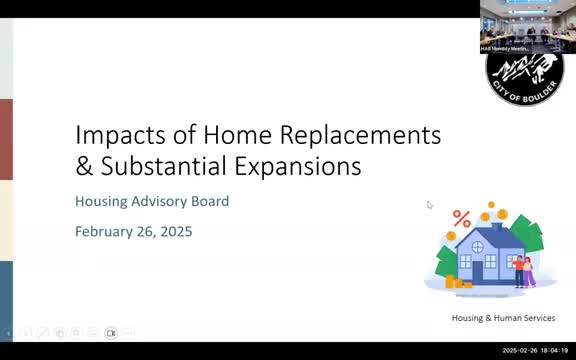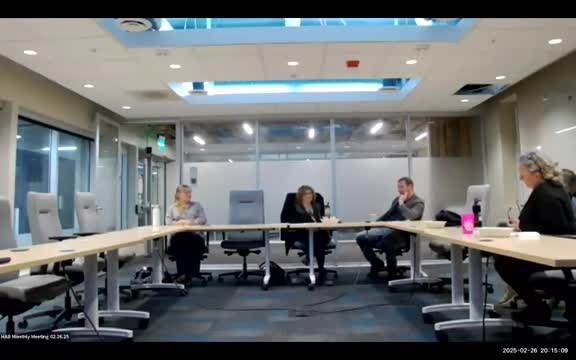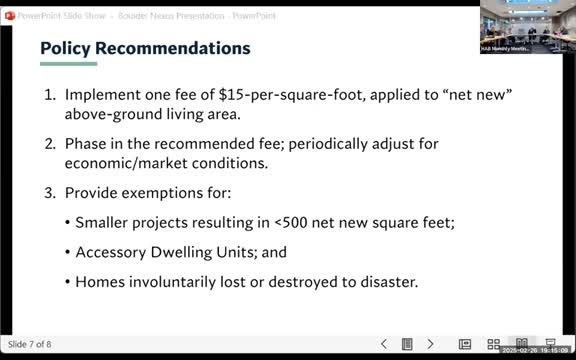Article not found
This article is no longer available. But don't worry—we've gathered other articles that discuss the same topic.

Boulder consultants recommend a square‑foot impact fee to fund affordable housing from home teardowns and large additions

Housing Advisory Board approves quarterly update talking points for council and adopts minutes

